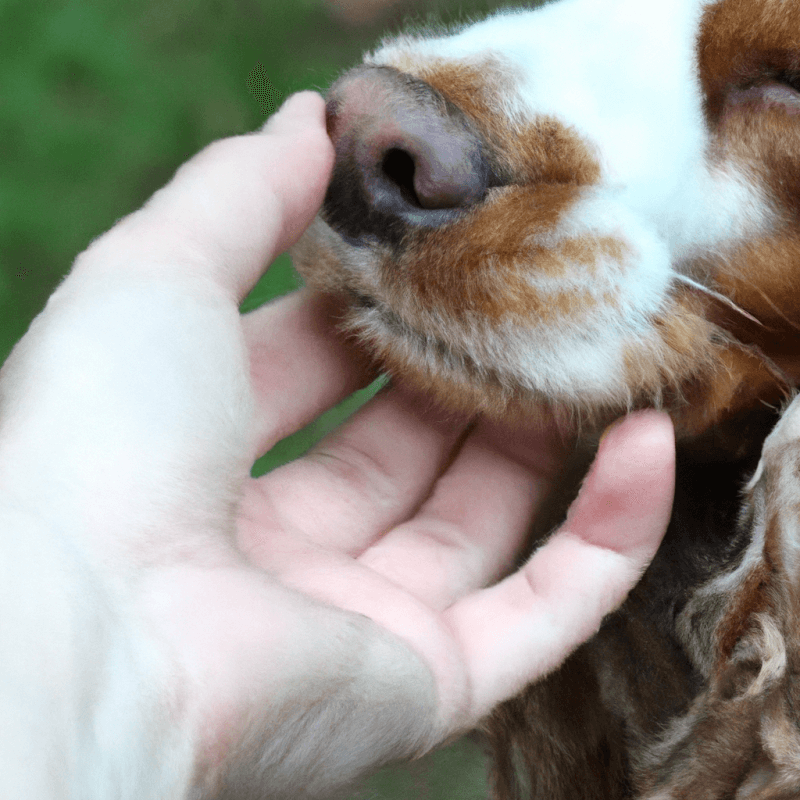Did you know that your beloved furry friend might be just as susceptible to catching a cold as you? The common cold is often associated with humans, but have you ever wondered if your pets can catch colds from you too? In this article, we will explore the curious question of whether pets can actually catch colds from humans. So, grab a cozy spot and get ready to uncover the fascinating truth about this viral possibility!
Can Pets Catch Colds From Humans?
Understanding the Common Cold
The common cold is a viral infection that affects the respiratory system, causing symptoms such as sneezing, coughing, runny nose, and congestion. It is a highly contagious illness that can spread from person to person through droplets in the air or by touching contaminated surfaces. This raises the question: can pets catch colds from humans?
Ready for Cat Trivia?
Test your knowledge about cats!

Transmission of the Common Cold
The transmission of the common cold can occur through close contact with an infected individual. When an infected person coughs or sneezes, the virus becomes airborne, and if inhaled or ingested, it can lead to infection. Additionally, the virus can survive on surfaces for a significant period, and if a person touches these surfaces and then touches their nose or mouth, they can transmit the virus to themselves. However, can this transmission occur between humans and their pets?

Susceptibility of Pets to the Common Cold
While it is possible for pets to catch colds, they are typically caused by different strains of viruses that are specific to each species. For example, cats may catch feline upper respiratory infections, while dogs can suffer from kennel cough. These illnesses share similar symptoms to the common cold in humans but are caused by different pathogens.
Research on Inter-Species Transmission of Colds
There is limited research on the inter-species transmission of the common cold between humans and their pets. However, studies have shown that certain viruses, such as the H1N1 influenza virus, can be transmitted from humans to pets. In 2009, during the H1N1 pandemic, cases of humans transmitting the virus to their pets, including cats, dogs, ferrets, and even a cheetah, were reported. This indicates that transmission between species, although rare, is possible.

Potential Risks to Pets
If pets were to contract a cold or flu virus from humans, the potential risks could vary depending on the species and the specific virus involved. In general, young animals, elderly pets, and those with pre-existing health conditions may be more susceptible to severe illness. Additionally, certain viruses that affect humans, such as the H1N1 influenza virus, can cause serious complications in pets.
Preventive Measures for Pet Owners
To minimize the risk of transmitting a cold or flu virus to your pets, it is important to practice good hygiene. This includes washing your hands frequently, especially before and after handling your pets. If you are sick with a cold or flu, it is advisable to limit close contact with your pets until you have fully recovered. Covering your mouth and nose with a tissue or your elbow when coughing or sneezing can also help prevent the spread of respiratory droplets.

Symptoms of a Cold in Pets
Just like humans, pets may exhibit symptoms similar to a cold when they become sick. These symptoms can vary depending on the species but commonly include sneezing, coughing, nasal discharge, lethargy, decreased appetite, and fever. If you notice any of these signs in your pet, it could suggest that they have caught a respiratory illness and may require veterinary attention.
Treatment for Pets with Colds
Most colds in pets are self-limiting and do not require specific treatment. However, supportive care can help alleviate their symptoms and promote a faster recovery. This may include providing a warm and comfortable environment, ensuring they have access to fresh water, and feeding them a balanced diet to support their immune system. Over-the-counter medications or home remedies should not be administered without consulting a veterinarian, as they may be harmful to pets.

Consulting a Veterinarian
If your pet is exhibiting signs of illness, it is crucial to consult a veterinarian for a proper diagnosis and treatment plan. They can determine whether the symptoms are related to a common cold or if there is an underlying condition that requires attention. Veterinarians may recommend specific medications or prescribe supportive care to help your pet recover quickly and comfortably.
Conclusion
While the transmission of the common cold from humans to pets is rare, it is still possible for viruses to cross species. As responsible pet owners, it is important to practice good hygiene, limit close contact with our pets when we are sick, and seek veterinary attention if our furry companions show signs of illness. By taking these preventive measures and consulting professionals when needed, we can ensure the health and well-being of both ourselves and our beloved pets.



